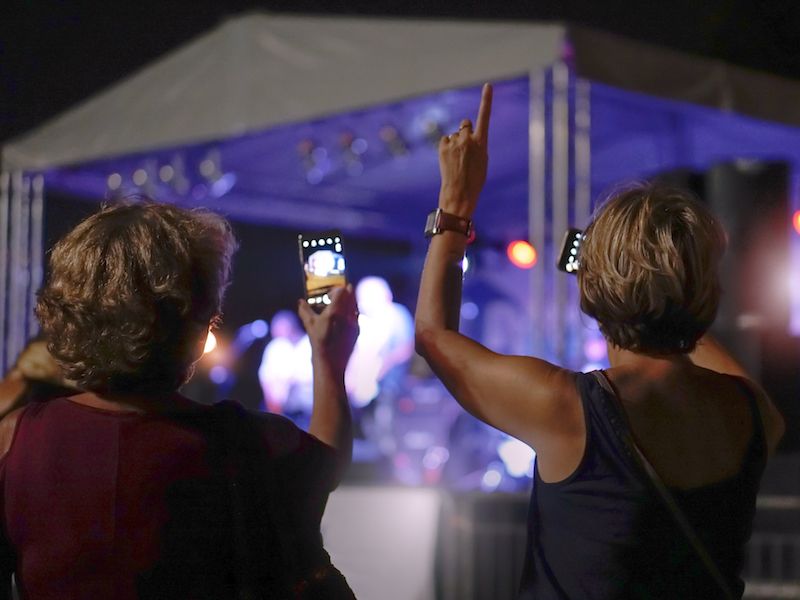
We’ve been looking forward to summer activities all year: swimming in the pool, going to the beach, and other activities that can injure your hearing. You may find yourself in environmental scenarios or exposed to other loud noises this summer that are hidden hazards to your ears. Any sounds above 80 decibels can cause injury to your hearing, while swimming in pools or other bodies of water can bring about irreversible loss of hearing. You have to take precautions and be mindful of your environment so that you can keep your hearing safe this summer season. Keep reading to learn the summer’s 6 hidden hazards to your ears.
When You go to Concerts, Use Ear Protection
The summer season is concert time, but even if you’re in a venue, you still should protect your hearing. 90 decibels is inside the danger zone for ear damage and concerts reach this volume even when you’re at outdoor shows. So regardless of whether you’re going to inside or outside concerts, it’s a practical plan to use earplugs. Earplugs dampen the sound while still letting you hear and enjoy the music. If you’re going to a show with young kids, consider buying them a heavy duty pair of earmuffs since their hearing is much more delicate than those of adults.
Fireworks Are More Than Just Loud
Honestly, there are a lot of reasons to avoid fireworks in the summer. It’s not exclusively the 4th of July shows which are pro that can harm your hearing, we mean the backyard fireworks which every summer cause hundreds of accidents. In addition to causing hand injuries, loss of sight, and home fires, backyard fireworks can also cause severe damage to your hearing since they are known to get to volume levels of 155 dB. This year, on the 4th of July, appreciate the fireworks from a little further away and leave the fireworks to the pro’s.
Loss of Hearing Can be Caused by Lawnmowers
If you’re really serious about your lawn, most likely you’re out there each week on your lawnmower, trimming your bushes and using your edger. But have you ever noticed how off your ears feel when you finish, making everything sound muffled? That’s because the lawn tools, which are constantly loud, impact your hearing over time. If you’ve ever noticed landscapers, you probably have seen them wearing hearing protection, you should take a hint from them and wear earmuffs or earplugs next time you work on your lawn to ensure your hearing doesn’t get injured.
Pools And Beaches, What You Need to do to Protect Your Hearing
Huge numbers of people suffer from swimmer’s ear every summer, which happens when bacteria-laden water becomes trapped in your ear canal. Painful earaches and swelling result when the bacteria infects the ear. It’s not just lakes and rivers that hold these bacteria, they can also be found in hot tubs and pools if they are not cleaned and treated correctly. No permanent injury should take place if you get your ears assessed by a hearing expert. To protect against swimmer’s ear, though, you will want to wear specialized swimming earplugs in the pool and have your pool water analyzed to make sure the chemical balance is ok.
Water Sports And Boats
Summertime is a breath of freedom for those individuals who love to be in a boat on the water, smelling the salt air of the ocean or the fresh breeze of the lake. But, boat and jet ski engines are usually noisy,we’re talking over 100 decibels. Continuous exposure to that kind of noise for a period of about 15 minutes can lead to irreversible hearing damage. In this situation also, using a set of throw away foam earplugs is a smart idea.
Your Ears Can be Hurt by Car Races
It doesn’t make a difference what type of auto racing you like, stock cars, midgets, motorcycles, drag racing, Formula 1. If you go to a lot of auto-races this year, they all present a peril. It’s estimated that volume levels can go beyond 120 decibels at many races, which is absolutely in the danger zone for hearing injury. Earplugs are your best friends at these races, although your children should definitely wear the earmuffs we mentioned earlier. Because you may not be able to appreciate the sounds of any races in the future if you don’t.
